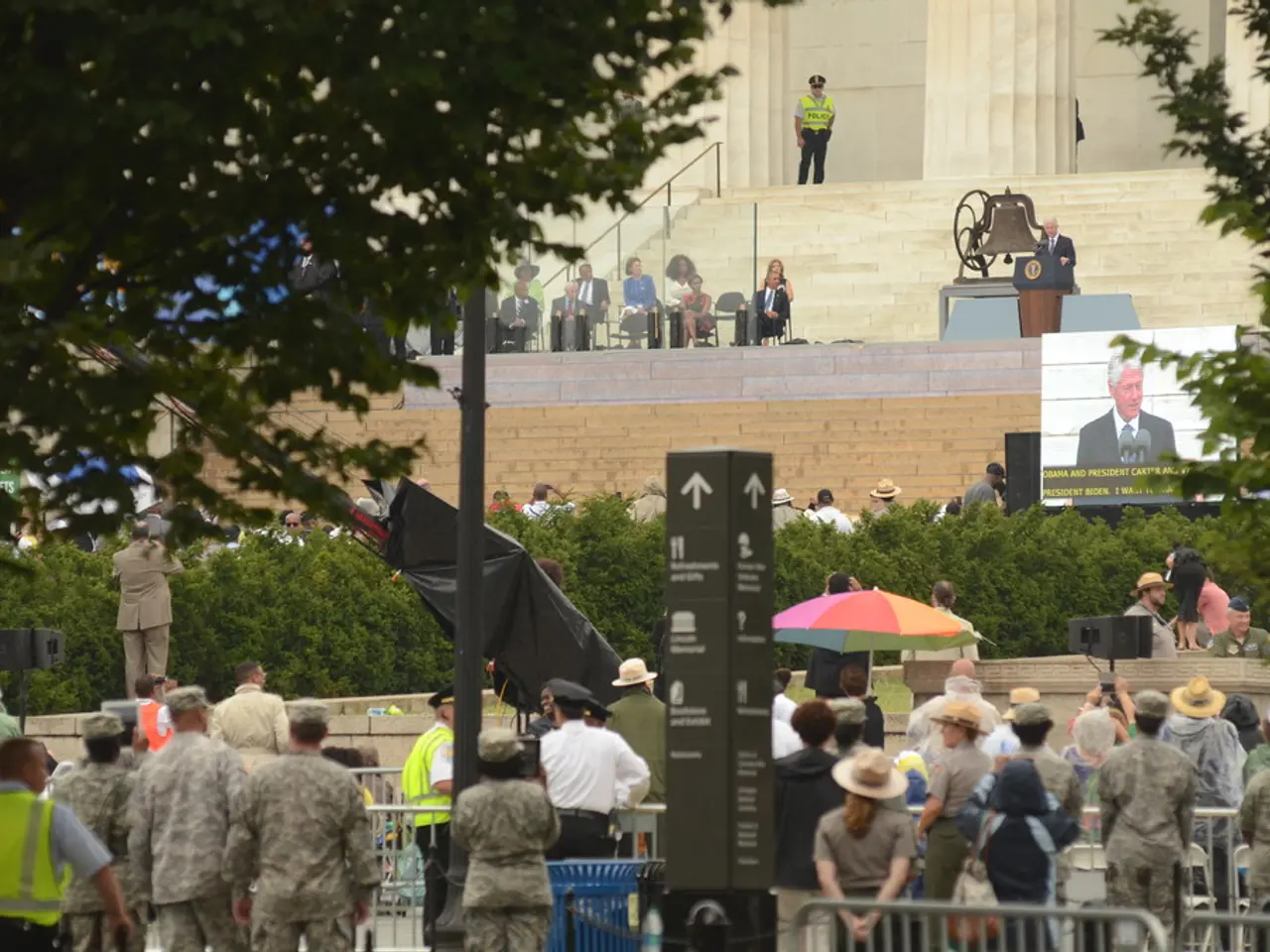Strategic Path to Syria's Peace Relies on National Conversation
In the aftermath of the fall of the Assad regime in December 2024, Syria has been grappling with a tumultuous transition period. The UN-led peace process, which once aimed to bring the regime and its opposition together, has lost its relevance, leaving a void in the search for a peaceful resolution.
The transitional authorities, struggling to rally support, have been criticised for their lack of inclusive dialogue. Deepening divisions have become a concerning trend, as sectarian violence continues to make reunification an elusive goal. To date, there remains no meaningful framework for peace.
One of the key issues that has exacerbated tensions is the Constitutional Declaration. Critics argue that the document, meant to be drafted through community consultation, grants the President sweeping powers without clear checks and balances across the executive, legislative, and judicial branches. This has only served to amplify public concerns.
The interim president, Ahmad al-Sharaa, pledged peace and stability but failed to create a genuine national dialogue. His vision of a national dialogue event aimed at consolidating power with a moderate agenda has faced opposition from hardliners within his ranks. The temporary constitution does not reflect Syria's diverse social and political landscape, further fuelling mistrust.
The national dialogue initiative, launched as the centerpiece of the transition, has become a hollow exercise, delivering neither legitimacy nor a credible roadmap for peace. The committee declared that conference results would not be binding, consolidating decision-making in one office rather than embedding it in a participatory process. The entire initiative was wrapped up in a two-day conference on February 24, ending in a statement widely believed to have been drafted before the event began.
In the absence of a national framework for reconciliation, Damascus turned to direct negotiations with regions outside its control. Regions such as northeast Syria, governed by the Kurdish-led Autonomous Administration, and Sweida, the Druze-majority province, have called for a secular, decentralized system that guarantees local autonomy in governance, security, and military affairs.
However, talks have stalled due to the wide gap between their demands and the centralized model the transitional government continues to insist upon. The risks of continuing with this approach extend beyond the diminishing chances of a breakthrough or rising tensions that could drag Syria back into violence. They also lie in the fact that discussions remain confined to narrow elite circles, reproducing the exclusionary patterns of the past instead of breaking from them.
A national dialogue can provide the legitimacy and cohesion the transition so desperately lacks, create inclusion, and offer a peaceful means to resolve divisive issues such as governance, constitutional design, and power-sharing. Without a national dialogue, the dangers of renewed conflict and fragmentation will only grow. In the absence of a national framework, parties have little incentive to compromise. It is crucial that all Syrians are included in the dialogue to ensure a peaceful and sustainable future for the country.
Read also:
- United States tariffs pose a threat to India, necessitating the recruitment of adept negotiators or strategists, similar to those who had influenced Trump's decisions.
- Weekly happenings in the German Federal Parliament (Bundestag)
- Southwest region's most popular posts, accompanied by an inquiry:
- Discussion between Putin and Trump in Alaska could potentially overshadow Ukraine's concerns








